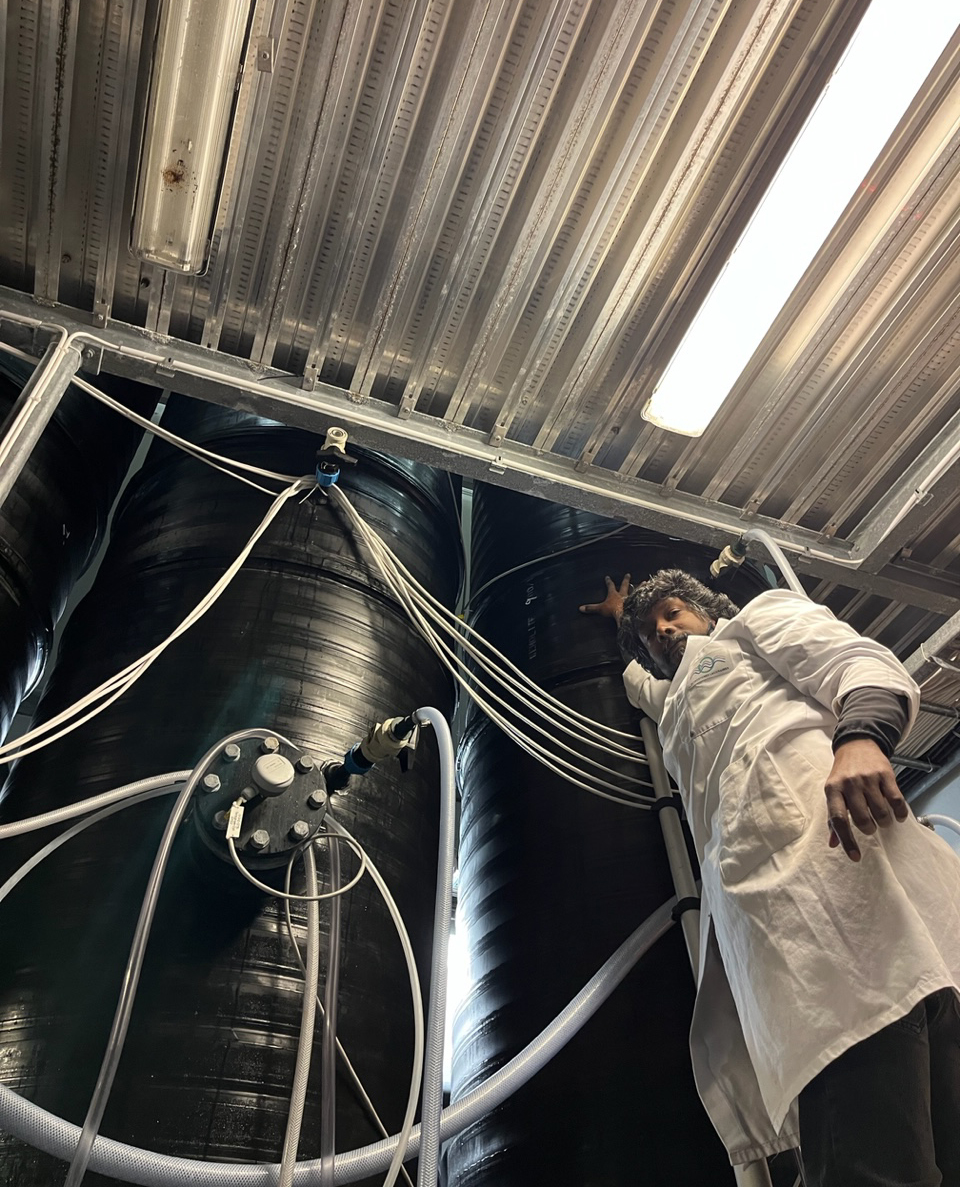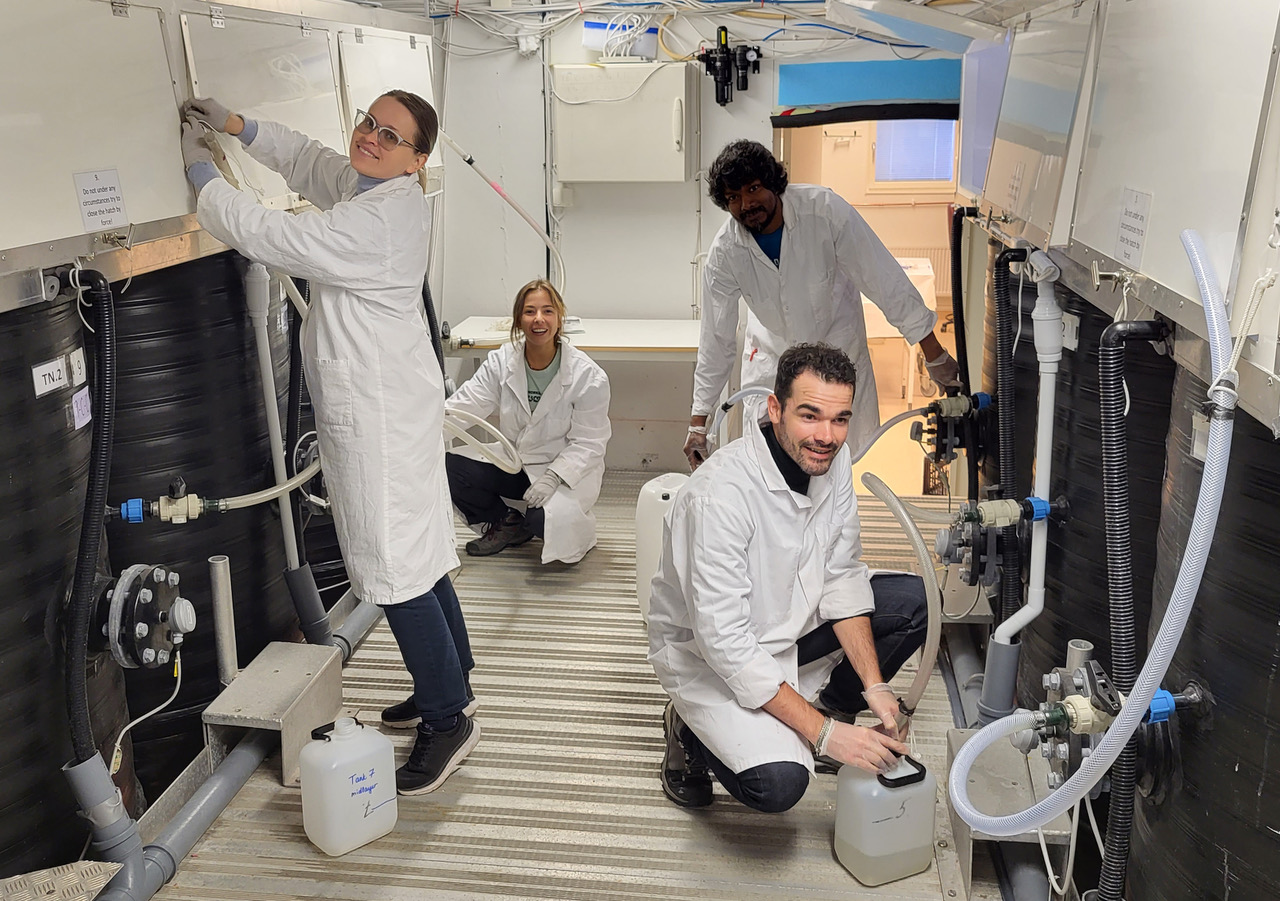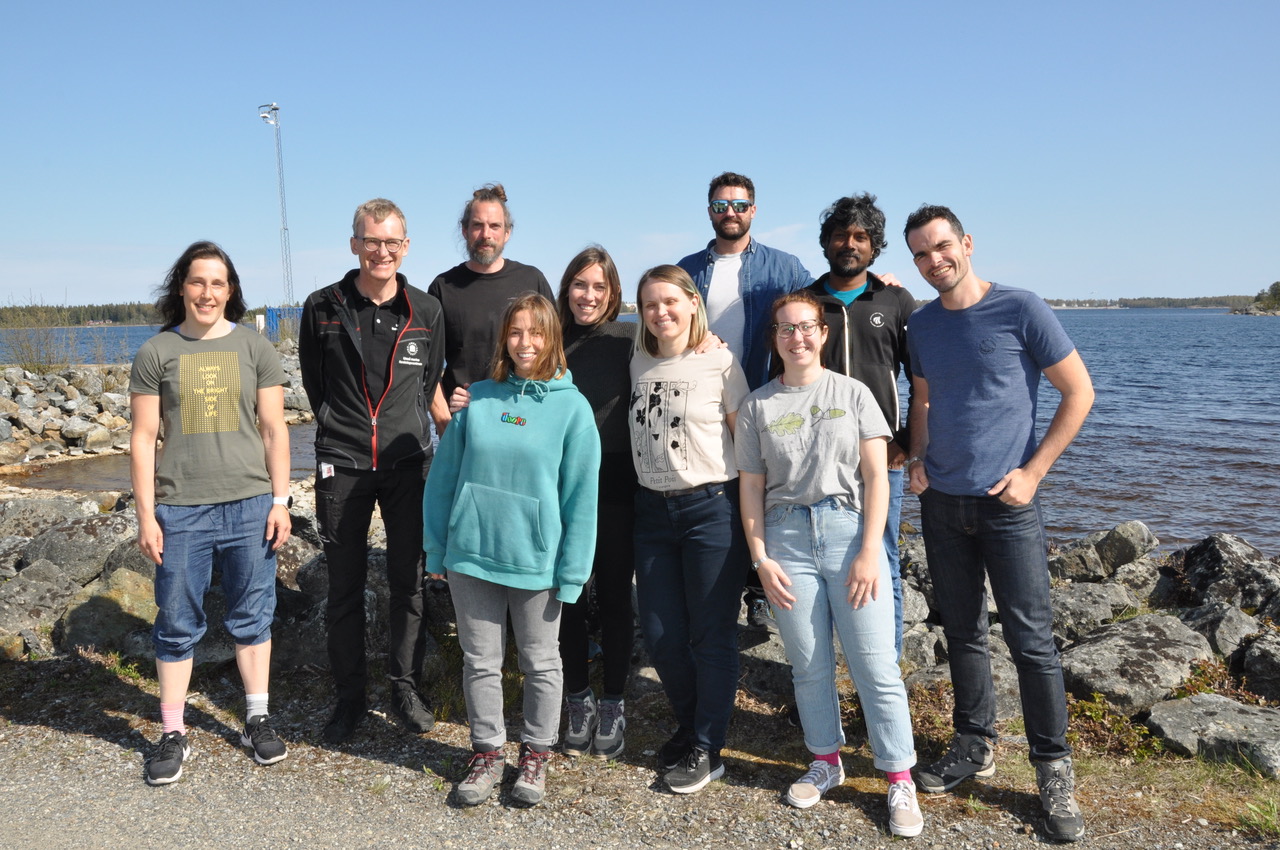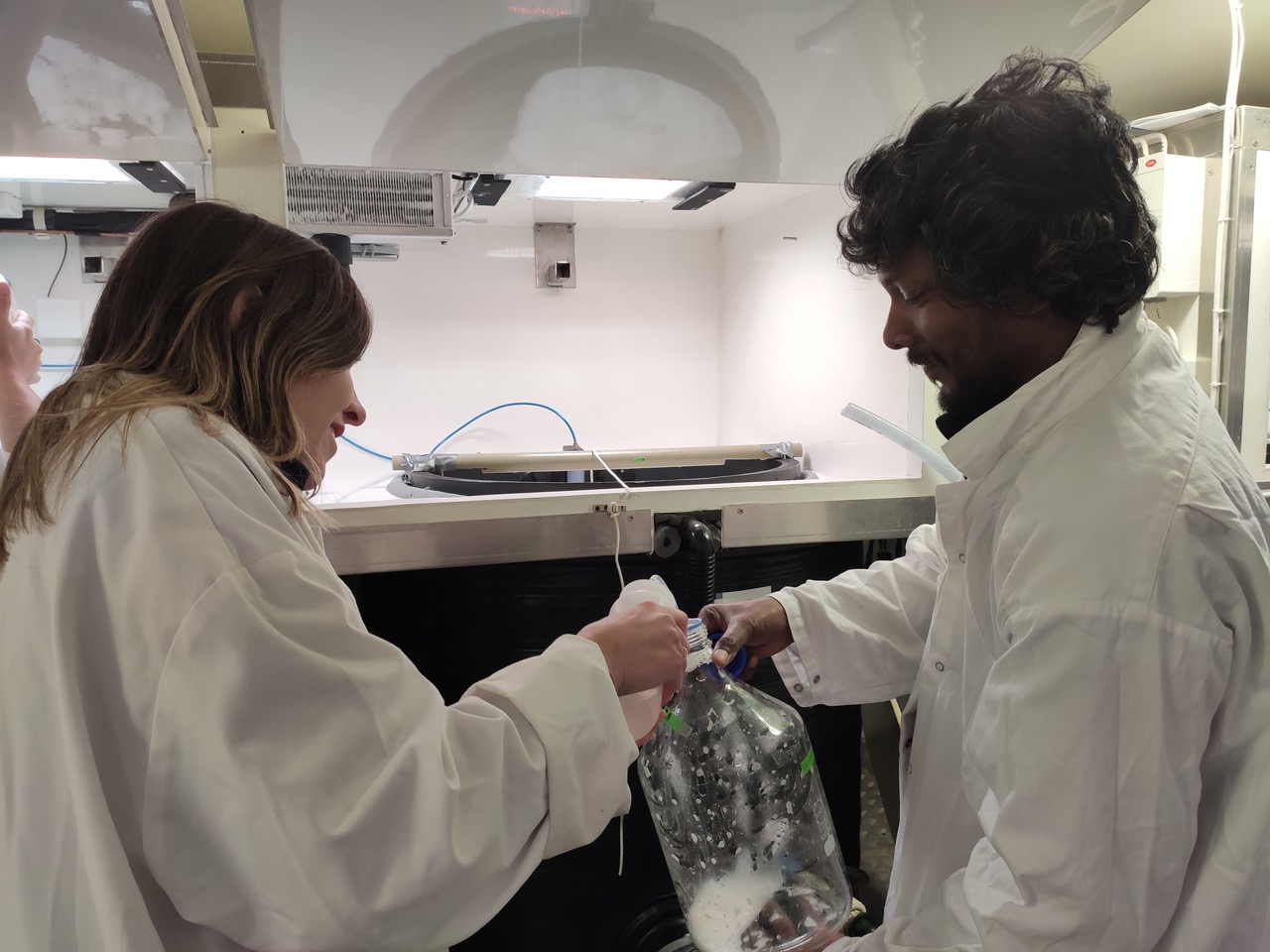The obtained results show that the studied commercial biopolymers (PLA, PHBv) are significantly more toxic than conventional plastics (PP) for plankton communities
The group has conducted studies in microcosms and has found similar results in species from other waters, including species from the coastal ecosystems of the Canary Islands
Researchers of the national MICROPLEACH project, from the EOMAR group of the ECOAQUA Institute of the University of Las Palmas de Gran Canaria, in collaboration with the European consortium JPI OCEANS RESPONSE, have recently conducted joint experiments in mesocosms to unveil the ecological effects of commercial biodegradable plastics compared to conventional plastics using a community-level approach.
 Gunaalan Kudithamby (Technical University of Denamark- DTU)
Gunaalan Kudithamby (Technical University of Denamark- DTU)
So far, the researchers of the MICROPLEACH group have carried out ecotoxicological studies in microcosms to determine the effects of leachates and additives from different plastics of emerging concern on various marine organisms with key roles in the marine ecosystem.
This experimental collaborative project on mesocosms entitled “BIOPLAST (“Are biodegradable plastics environmentally safer than conventional plastics? A mesocosm approach”) has been coordinated by Dr Rodrigo Almeda from the EOMAR group of ECOAQUA, and is included in the research line of the university institute “Ecology of plankton and marine pollution”. BIOPLAST has been funded by the EU H2020-INFRAIA AQUACOSM-plus program financed by the European Commission.
 Natalja Buhhalko, from the University of Estonia), Gunaalan Kudithamby (Technical University of Denamark- DTU), Marta Sampalo and Jessy Le-Du, both from the ECOAQUA Institute of the ULPGC.
Natalja Buhhalko, from the University of Estonia), Gunaalan Kudithamby (Technical University of Denamark- DTU), Marta Sampalo and Jessy Le-Du, both from the ECOAQUA Institute of the ULPGC.
The experiment was carried out between the months of May and June 2023 at the Mesocosm Facility of the Marine Science Center in Umea (Sweden) and had the participation of 21 scientists from 9 European research centers. On behalf of ECOAQUA, in addition to Rodrigo Almeda as main researcher, the postdoctoral researcher Jessy le Du, the PhD student Marta Sampalo and the researcher Olalla Alonso took part in the project.
Preliminary results of this line of research were presented at the JPI Oceans Joint Action meeting “Ecological Aspects of Microplastics” on the 14th and 15th of September in Galway (Ireland). The obtained results show that the studied commercial biopolymers (PLA, PHBv) are significantly more toxic than conventional plastics (PP) to plankton communities in Baltic waters. The group has conducted studies in microcosms and has found similar results in species from other waters, including species from the coastal ecosystems of the Canary Islands.
 From left to right: Simona Bartkova (University of Estonia), Göran Bergqvist ( UMEÅ Marine Science Center), Per Lindstrom (Örebro University), Marta Sampalo (ECOAQUA- ULPGC), Melissa Orsini (University of Marche), Natalja Buhhalko (University of Estonia), Rodrigo Almeda (ECOAQUA- ULPGC), Olalla Alonso (ECOAQUA- ULPGC), Gunaalan Kudithamby (Technical University of Denmark- DTU), Jessy Le-Du (ECOAQUA- ULPGC), Gunaalan Kudithamby (Technical University of Denmark- DTU), Jessy Le-Du (ECOAQUA - ULPGC)
From left to right: Simona Bartkova (University of Estonia), Göran Bergqvist ( UMEÅ Marine Science Center), Per Lindstrom (Örebro University), Marta Sampalo (ECOAQUA- ULPGC), Melissa Orsini (University of Marche), Natalja Buhhalko (University of Estonia), Rodrigo Almeda (ECOAQUA- ULPGC), Olalla Alonso (ECOAQUA- ULPGC), Gunaalan Kudithamby (Technical University of Denmark- DTU), Jessy Le-Du (ECOAQUA- ULPGC), Gunaalan Kudithamby (Technical University of Denmark- DTU), Jessy Le-Du (ECOAQUA - ULPGC)
The increased toxicity of “bioplastics” in comparison with conventional plastics raises concerns about the chemical safety of commercial bioplastics, emphasizing the need for more research on the toxicity of functional additives associated with bioplastics and the search for alternative additives that are less dangerous to the marine ecosystem
For more information, contact Beatriz Díaz - beatriz@mandarinacomunicacion.es / +34 620 410871


